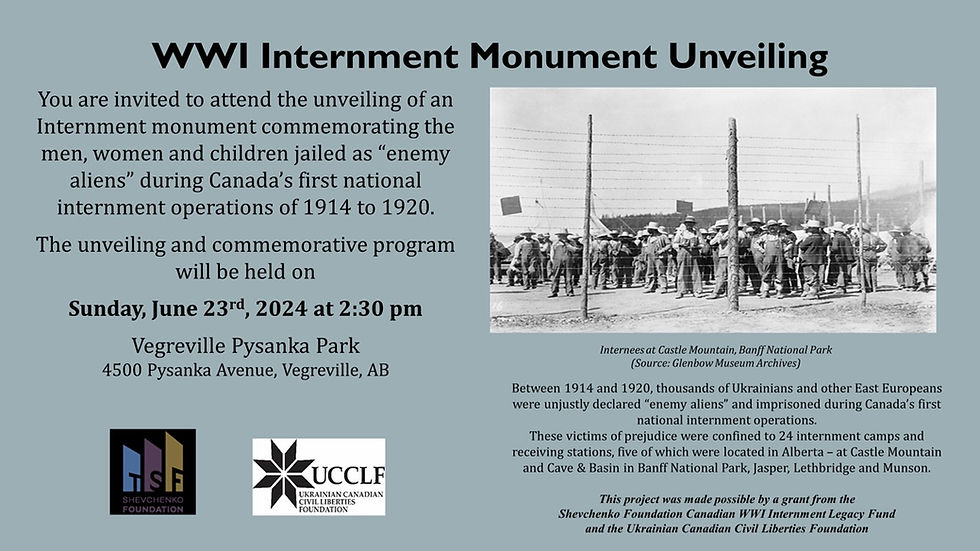Ukrainian Canadian Delegation Meets with Minister of Canadian Heritage To Discuss Redress
- Mar 24, 2006
- 2 min read
UCCLA, For Immediate Release (24 March 2006 - Toronto)
Eight months after signing an Agreement in Principle with the Government of Canada providing for the funding of various educational and commemorative projects having to do with Canada's first national internment operations, representatives of the Ukrainian Canadian community met with the new Minister of Canadian Heritage, the Honourable Bev Oda, in Ottawa yesterday. Dr Lubomyr Luciuk, Mr Andrew Hladyshevsky, and Mr Ostap Skrypnyk represented the Ukrainian Canadian Civil Liberties Association, the Ukrainian Canadian Foundation of Taras Shevchenko and the Ukrainian Canadian Congress respectively.
Commenting on the results of this first meeting between the community and the Minister, Dr Luciuk said:
" We are very pleased that the Minister reconfirmed this government's commitment to honouring the Agreement in Principle we signed in Regina, 24 August 2005. We can now report that, once the government has determined the appropriate Terms and Conditions. no less than $2.5 million will be made available to the National Redress Council of the Ukrainian Canadian community. Those funds will then be used for commemorative initiatives that we believe will hallow the memory of all those who were subjected to various state sanctioned censures during Canada's first national internment operations and so help ensure that no other community ever has to endure what Ukrainians and other Europeans once did, in some future period of domestic or international crisis. We anticipate meeting again with the Minister, after Easter , to discuss the Terms & Conditions that will apply to this funding and to begin negotiations towards securing a second, larger sum to be managed as an endowment dedicated to long-term educational, research, cultural and memorial efforts."



Comments